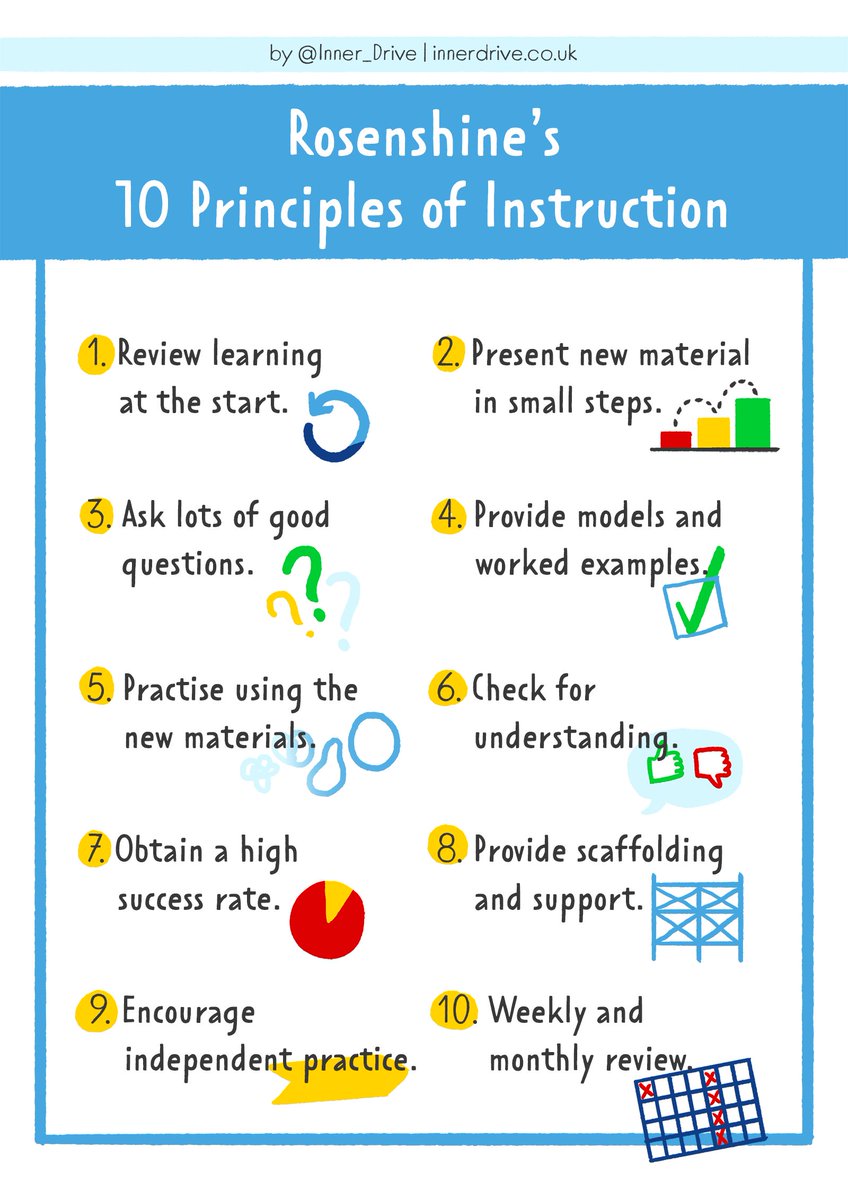
Former teacher helping schools implement effective instruction | Progressively Incorrect🎙️ | Director @Steplab_co North America | PhD, Author of Just Tell Them
How to get URL link on X (Twitter) App


 2. Understanding limited WM gives rise to all sorts of techniques that can be used to improve the efficiency and effectiveness of instruction. For example, drawing on a blank canvas allows you to funnel just one item at a time into WM compared to presenting everything at once.
2. Understanding limited WM gives rise to all sorts of techniques that can be used to improve the efficiency and effectiveness of instruction. For example, drawing on a blank canvas allows you to funnel just one item at a time into WM compared to presenting everything at once. 
https://twitter.com/LEGO_Education/status/17777282324663997003. The kids actually don't like free play with them for that long. They much prefer following the instructions. If your idea of good education is learning to read instruction manuals, then 👍


 2. Set Up Principle: During initial teaching of a concept, pair examples with non examples that
2. Set Up Principle: During initial teaching of a concept, pair examples with non examples that 

 2/ "This is wrong since it conflicts with my beliefs."
2/ "This is wrong since it conflicts with my beliefs."
 2/ Instead of a poet or an inspirational speaker, we had a keynote by an expert cognitive scientist, @DTWillingham. He kindly emailed me to apologize for having to miss my session, which was later in the day.
2/ Instead of a poet or an inspirational speaker, we had a keynote by an expert cognitive scientist, @DTWillingham. He kindly emailed me to apologize for having to miss my session, which was later in the day. 



 2/7 Despite a college education at an esteemed university and undergoing a teacher preparation program culminating in a Masters degree, I'm pretty sure I endorsed all of these neuro-myths no more and no less than the general public 👇👇👇👇👇
2/7 Despite a college education at an esteemed university and undergoing a teacher preparation program culminating in a Masters degree, I'm pretty sure I endorsed all of these neuro-myths no more and no less than the general public 👇👇👇👇👇 